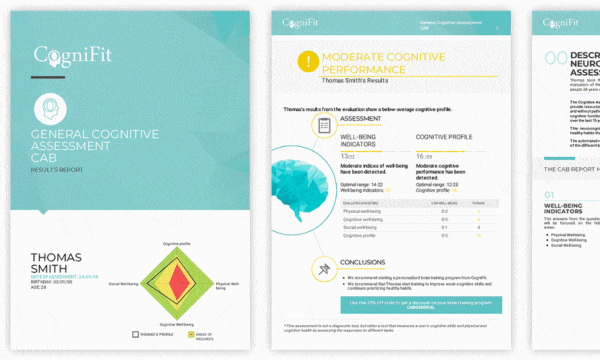
Effective Communication Skills: 10+ tips for speaking up at work, school, or wherever.
Have you ever wanted to communicate better? Do you feel insecure when speaking in public? Is it hard for you to write? Do you not know what to say sometimes? In this article, we will tell you what are effective communication skills, what types there are and where can you apply them. Furthermore, we will give you tips on how to improve them.

Effective communication skills: Definition and purpose
Communication skills can be defined as a set of skills that enable a person to communicate properly. According to Hymes, the creator of this concept, effective communication skills consist of knowing “when to speak, when not, and what to talk about, with whom, when, where, in what form“.
We interact constantly with other people and we can’t stop expressing ourselves. Therefore, mastering these skills is fundamental to our personal and social development. We use them when speaking, listening, reading and writing.

Nowadays it’s hard to get away from our computer screens and mobile phones. Communication is constantly changing and we have to quickly adapt to it. Even so, no matter with what you communicate, you need to use effective communication skills.
We all know how upsetting misunderstandings are. We also know or can imagine the uncomfortable feeling when someone doesn’t pay attention to us when we speak. Sometimes, it’s inevitable that what we say is not interesting or that there are errors in the communicative process. However, here we will give you some guidelines to encounter those situations as little as possible. Discover how to improve your communication skills.
Effective communication skills: Applications
We can’t stop communicating, even if we try. A single gesture betrays us. In fact, even when we are alone we talk to ourselves. Finding the right words and thoughts comes in handy in all aspects of life. We will mention three main ones.
1. Effective communication skills at work
People who work harder or better don’t always receive all the attention. Sometimes the main thing is how ideas are sold to the boss and the power of persuasion. Effective communication skills allow us to develop influential techniques and reach a greater audience.
At the professional level, it is essential to know how to deal adequately with peers, make good decisions even in stressful situations or under job stress. This is one of the reasons why effective communication skills are increasingly valued.
They are almost as important as mastering other languages or handling various computer programs. A person with good communicative skills stands out above the others in several areas and is the most prominent candidate in job interviews.
Specifically at work, effective communication skills are highly valued as well as assertiveness. Communicating what you need in a polite and respected way is very important in corporation settings.
2. Effective communication skills in education
We can train these skills from childhood, the best and most appropriate way to develop these skills is in our natural environment. Communicating well improves our personal relationships and our well-being. It makes us feel competent.
It is essential to include these skills while teaching. If we make sure that our children are capable of effectively communicating then we will make sure they become resolute and satisfied adults. Likewise, we will be able to improve our communication with children. In order to educate in communication, we also have to be good communicators. It is impossible to convey this knowledge well if we are not good role models to imitate.
3. Effective communication skills in everyday life
We need these skills to communicate constantly. For example, to tell our roommate to wash the dishes, give bad news to a friend or send a postcard to our relatives. From the smallest to the most complicated interaction, we are in constant demand to effectively communicate ourselves. Communicating well saves time, effort and makes life more enjoyable.
Everyday effective communication skills
4. Effective communication skills in a difficult conversation
We all have conversations that we feel are difficult to tackle, here are some things to keep in mind when dealing with this issue. Miscommunication is very common because even though we might be in a conversation speaking the same language, our interactions are more complex than you could imagine. The next video explains how miscommunication is very easy and how to avoid it.
a) Deliver more positive than negative feedback
Postive statements are those that come across as supportive, appreciative, encouraging, meanwhile negative ones are those that are critical, disapproving and contradictory. Our brain tends to focus on the negative aspects more than the positive, therefore, it’s important to deliver around five to six times as many positive statements to every negative statement. This comes in handy not only for work settings but personal relationships as well.
b) Facial expression
Remember that emotional intelligence is all about reading another person’s emotion and empathizing. For effective communication skills, it’s important to focus on their facial expression. Smiling is important for social interactions when delivering feedback try to keep your facial expression as positive as possible and always looking for cues of how the other person might take it.
c) Stress the importance of working together to solve difficulties
When speaking about a problem always try to describe the situation without any evaluation, identify your feelings regarding the situation (don’t place blame) and suggest solutions that can make it better (avoid arguing about who is right or wrong).
d) Eye contact
Psychologists describe resonance as a person’s ability to read someone else’s emotions. This is mainly done through eye contact, it allows for people to create a connection and helps with feedback.
e) Be authentic
Even though there are many tips on how to effectively communicate in complicated situations the critical aspect of all is that you should always remain authentic. If you come out as someone other than yourself your efforts will backfire.
f) Be Compassionate
Treat every conversation, regardless of context, as an opportunity to connect with another person who has their own needs and pain. Everyone, at some point, goes through tough times, sad times, etc. By remembering the human experiences we all share, you will find that you are able to bring kindness and compassion into the conversation.

10 Characteristics of a person with effective communication skills
1. They are observers
In a way empathy allows us to infer the mental states of others. Good communicators know how to anticipate the reactions of others, recognize them, and modify their speech accordingly.
2. Can understand the context
People with effective communication skills are characterized by being curious about the world and adapting to the individual, social and cultural differences. Imagine that you are traveling to an Asian country and you notice that its inhabitants feel uncomfortable talking to you. It is probably because they consider disrespectful to stare into their eyes.
We do not have to go that far to assess the situation. It is important to always take into account your surroundings when assessing the best way to communicate.
3. Have high self-efficacy
They see obstacles as challenges. Believing in our possibilities makes it easier for us to focus on what we have to say without being distracted by our insecurities. It is normal to have certain doubts (and convenient when learning to improve ourselves), but there are appropriate ways to value more the perception that we have about our abilities.
4. They are respectful
A person with effective communication skills is able to talk to people with whom he disagrees and not lose their temper or patience. This is complicated if we argue about politics, religion or football. How many times have we seen people lose their tempers over nonsense? Good communicators accept the other person’s point of view and give their arguments kindly.
5. They are emotionally intelligent
They worry about what their interlocutor feels. They are assertive and empathetic. They know what questions they have to ask, how to address them, and when it is best to keep quiet.
6. They are organized
They order their thoughts before explaining them. They think before they speak and are not afraid to admit that they don’t know something. Both speaking and writing require that we order our ideas consistently. This way we will make it easier for our interlocutor to follow our argument and find our words more attractive.
7. They are creative
They tend to tell stories to generate emotional bonds with their listener, create the right metaphors, look for witty and memorable examples, etc. They are flexible and know what is best for each occasion.
8. Have good references
They examine other’s communication skills and take the best out of each encounter. They learn fast and perfect their techniques. If this is not something you tend to do, put it into practice as an exercise to achieve effective communication skills.
9. They are not afraid to be wrong
We can’t have everything under control, no matter how effective our communicative skills. Excellent communicators are not great for their perfection. They are great because they learn from their mistakes, they don’t give up and take their mistakes with humor. Failures are inherent in the communicative process.
10. Practice, practice, and practice
It is true that there are people who seem to have a supernatural ability to communicate. However, this potential is wasted if our communicative skills are not exercised. A little rehearsal never hurts. Practice enough to make sure your communicative skills are effective.
Types of effective communication skills
1. Grammatical or linguistic skills for effective communication
Language knowledge is important for this skill. This consists of integrating every aspect of the language, form, and meaning, maintaining a bidirectional relationship. It includes the phonetic level (intonation, rhythm, etc.), lexical-semantic (vocabulary) and grammatical (structure of words, how they combine, etc.). It is the basis of communication, without it, we could not even understand ourselves.
2. Sociolinguistic ability
To use this ability correctly we must be able to understand different expressions depending on the situation. Language is time-based, therefore it’s important to always have context. We can tell the difference between listening to a couple say “silly” affectionately and hear the same term when two people criticize another. Learn more about how we listen.
3. Fluency skill for effective communication
It includes different skills, from interpreting messages and transmitting various types of speeches in different circumstances. The content of the speech must be coherent and cohesive. We put it into practice when we tell (orally or written) a group of friends about our weekend through an orderly and logical structure.
4. Strategic skill for effective communication
It allows communication to be effective and enables mistakes to be repaired without breaking the course of the conversation. It involves a great deal of tactics to fill long silences or correct misinterpretations. It also includes non-verbal language. For example, it consists of redirecting the conversation what the argument gets heated without being too abrupt.
10 Tips for effective communication skills
1. Analyze yourself
Look for people in your environment who broadly convey what you want to say and examine their style. You will be more aware of what you do well and how you can progress. Soon you will carry out this process automatically. Try to not be too severe on your self-evaluation or self-appraisal, because it will only make you more nervous.
2. Be simple
Many times “less is more”. This is no exception. Do not waste time with huge expressions or bombastic terms. They will stifle the communicative process and do not always look good. This does not mean that we have to stop expanding our vocabulary. We simply have to know when to use the exact word and do it naturally.
3. Be natural
Have you ever thought that a person is not being themselves while talking to you? Sometimes we try to look and express ourselves like other people. This does not mean that we are lying but rather adapting. Imagine a person on a first date. You may be unsure and seek acceptance from your companion above all else. You may try to show that you have knowledge or characteristics that please your potential partner. Although we have the best intention in the world, this is forced and unconvincing. It is essential that you trust yourself and feel comfortable communicating well.
4. Be nice
It may seem obvious. However, sometimes with the rush, stress or bad mood, we forget to smile. It is hard for us to speak by transmitting positivity rather than by frowning. Not all circumstances require us to maintain cheerful behavior, but we can try to be as empathetic as possible. Develop your social skills. You will notice the benefits of being kind in both how others relate to you.
5. Adapt to your listening partner
Each person has their own reality. We differ in our sociocultural level, contemplate different points of view or have a different mental representation for the same word. This can lead to misunderstandings.
These mistakes can be avoided if we observe the listeners reactions and act accordingly. If you see that they are not understanding, look for explanatory examples. On the other hand, don’t let anything left unsaid if in doubt ask if your communication is effective.
6. Try Relaxation Techniques
An important exam, presentation or a person who makes us nervous can dimish our communicative skills. It is normal that we find ourselves restless in these circumstances. Still, there are ways to stay calm in stressful situations. For example, you can count until you feel better. It may seem silly to you, but it serves to focus on something else and get some distance from the problem.
7. Look for inspiration
Search and read more about effective communication skills. You can research topics such as body language, storytelling or neurolinguistic programming (NLP). Search the Internet for experts in your field and see how they communicate. On the other hand, literature can be another source of inspiration, in addition to producing great satisfaction.
8. Remember the power of images
If you have to make a presentation rely on visual resources. Use photos, illustrations or graphs to boost your ideas. You can rely on color psychology to create a more emotional bond with your audience. You will reinforce your words and the audience will remember them better. Just remember that the power will always rely on words.
9. Enjoy communicating
Communication is not just a medium, it can also be enjoyed. Not everyone loves to write stories or expose a delicate subject to hundreds of people. However, our communicative skills can also be comforting as telling a joke or giving a hug. Improving them will make these experiences even more satisfying.
By the way, this process will be more gratifying if we are not doing more things at the same time. This can not only be irritating to the other person. It will also diminish our attention and will not let us appreciate the conversation to the fullest.
10. Listen
Practice active listening, be empathic and try to get your interlocutor to feel understood. Knowing how to listen is as important as being grammatically flawless or having a broad vocabulary. That way you will not stop learning and you will enrich your interpersonal relationships.
11. Ask for feedback
Receiving honest feedback from peers, family members and even bosses will help you become an effective communicator and improve your skills. It is the perfect way to discover areas of improvement that might be overlooked.
12. Engage the audience (if its a group setting)
Every person has a different attention span, imagine all of those attentions spans combined. Keep this in mind when applying effective communication skills in group settings. Be sure to make your speech interactive by asking questions, allowing others to speak, etc.
13. Manage you time
Remember you are not giving out a monologue. Effective communication skills are all about time management and giving others the opportunity to speak as well. If you are giving a presentation and need to restrict information into a time frame, remember to always keep in mind your key points in order to communicate them effectively.
14. Be concise
Remember to always be direct, simple and to the point when trying to apply effective communication skills. Focus always on getting your point across keeping in mind all the other variables mentioned.
15. Be curious
Ignite your curiosity! Keep up to date with the news, your interests, etc. This will help you engage people and your effective communication skills will be great!
Watch to see more tips for effective communication skills by Celeste Headlee.
Thank you very much for reading this article. Will you exercise your communicative skills? I invite you to practice and comment if you liked the article or want to know more.
This article is originally in Spanish written by Ainhoa Arranz Aldana, translated by Alejandra Salazar.













